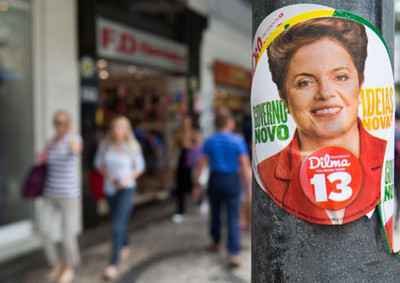Despite the massive protests prior to the Brazilian election, calling for sweeping changes to Brazil's domestic policies, Dilma Rousseff was reelected Brazilian president for the second term.
盡管巴西選舉之前曾經爆發過大規模呼吁全面改革國內政策的抗議活動,但迪爾瑪·羅塞夫仍舊再次當選巴西總統。
This has proved that Dilma Rousseff's social programs designed to improve the lives of the poor and efforts to raise Brazilian's income have paid off.
羅塞夫的當選證明了她旨在改善窮人生活及努力提高巴西收入的的社會項目終有所償。

But the neck-to-neck race, to some extent, also posed challenges to Rousseff in her second term.
但這場不分勝負的競爭在某種程度上也為羅塞夫的第二任期帶來了挑戰。
President Rousseff has yet to prove that her industrial policies are beneficial to the Brazilian economy, which are facing mounting downward pressure.
羅塞夫總統尚未證明她的產業政策能挽救正走下坡路的巴西經濟。
Her stance on regional trade integration during her second term can have a far-reaching impacts on the rest of Latin America.
第二任期內的她對地區貿易一體化的立場可以對拉美其他國家產生深遠影響。
So how do experts assess the outcome of the Brazilian election?
因此專家如何評估此次巴西大選的結果?
What changes might Rousseff bring to Brazil during her second term?
羅塞夫的第二任期內會給巴西帶來什么變化?
譯文屬可可原創,僅供學習交流使用,未經許可請勿轉載












